Table of Contents
High School Social Studies
9th Grade World History
In 9th Grade World History we have been studying the Mauryan and Gupta Empires. A recent activity the students engaged in was a note-taking strategy that required the 9th graders to use their comprehension of text structures (i.e. cause and effect, problem-solution, a timeline, and compare and contrast) to read, analyze and break down their understanding of the text. This is a strategy that we will use in further lessons centered around note-taking because it challenges the student to analyze the reading from multiple angles broadening their overall comprehension of nonfiction text.
Grade 10 World History Modern
Students in Modern World History have been studying the impact of revolutions on the creation of modern states. They have researched and reviewed information about the Agricultural Revolution, Scientific Revolution, American Revolution and French Revolution. They have completed group and individual presentations on a variety of topics and are working on understanding the importance of revolutionary ideas and movements that caused great change in society.
AP Psychology
The AP Psychology class has been studying how the human brain functions. The students learned about the various parts of the brain and how these parts function for healthy human behavior. The students also learned how damage to certain regions of the brain can alter behavior. Students also learned how drugs alter normal behavior. As part of our study, the students created a ‘Brain Cap’ to help them remember the various parts of the brain. This light-hearted activity reinforced their knowledge of the various parts of the brain and their functions. The students were certainly engaged and had fun creating their brain caps.
In the last few weeks the students started learning about Sensation and Perception. Students learned about how humans sense the things around them and how they perceive reality. The students were shocked to realize that Mr. Howard cannot hear the same high frequencies that they can. Students were also surprised to realize that we don’t see as much as we think we see. After reading about inattention and change blindness, the students were still surprised when they watched a video showing it actually happen.
International Relations
The students in International Relations have researched and studied the connections between philosophy, science and government actions as they impacted events in the 19th and 20th centuries. They have read and researched extensively on the topic of Eugenics and how the movement for “Racial Hygiene” impacted government policies around the world between 1849 and 1945. The students have created presentations covering all aspects of the Eugenics Movement in the “Progressive Era.” They are continuing the study by looking at the connections between Utopian Science Fiction of the same period and how these works reflected the criticism of government and society. Students are preparing presentations on several important books written in the period.
Middle School Information Technology
This week and next week, our middle school students will be taking Bebras Computing Challenge aimed at promoting computational thinking and computer science among 8-18 year-old students from around the globe! The annual challenge is an international competition in which students solve interactive tasks online. Over 2 million students from about 60 countries participated in 2018! The first round of the 2019-2020 school year will take place between the 4th and 15th of November. Our students will take the challenge during computer science class.
The tasks consist of fun, engaging short questions that can be answered without prior knowledge of computational thinking but can uncover a student’s aptitude for this subject. It teaches participants that computational thinking is an integral part of solving problems in daily life and aims to get students excited about computing!
Grade 6: Intro to Computing
Grade 6 students are learning basic of computer programming using Scratch. The unit will help students get familiarity and fluency with computational creativity and computational thinking. Class activities in this unit includes a mix of structured and open-ended activities that engage students in exploration of the key concept of sequence – identifying and specifying an ordered series of instructions. This is often a powerful moment for students: they’re telling the computer what to do, by translating their ideas into blocks of computer code.
Grade 7: Robotics
Our robotics class uses LEGO® MINDSTORMS® EV3 Education Core Set and EV3 Education Edition Programming Software to learn Robotics. Starting last week, grade 7 students are writing their first programs in EV3-G with the “Moving Straight” lesson. The “How Far?” and “How Fast?” lessons emphasize some of the math and science concepts behind moving straight ahead. Students will then learn to use the Color sensor and explore gears, so the are equipped to learn the Engineering Process and tackle their first Engineering Challenge, the Color-Activated Robo-Dragster.
Grade 8: Computer Game Design
Students in computer game design class started with the animation and games unit where they build on their coding experience as they program animations, interactive art, and games. The unit starts off with simple shapes and builds up to more sophisticated sprite-based games, using the same programming concepts and the design process computer scientists use daily. In the final project, students will develop a personalized, interactive program.















